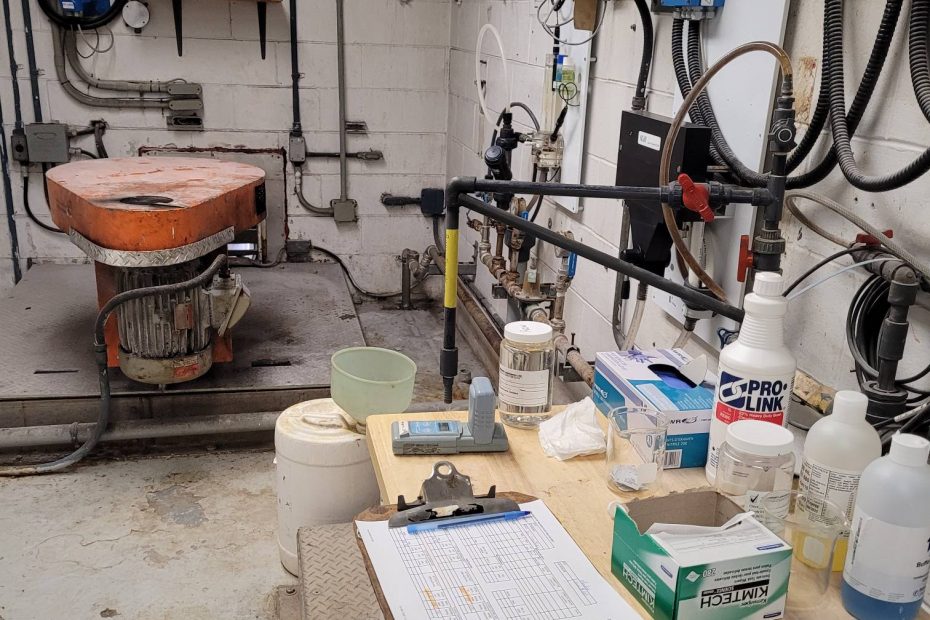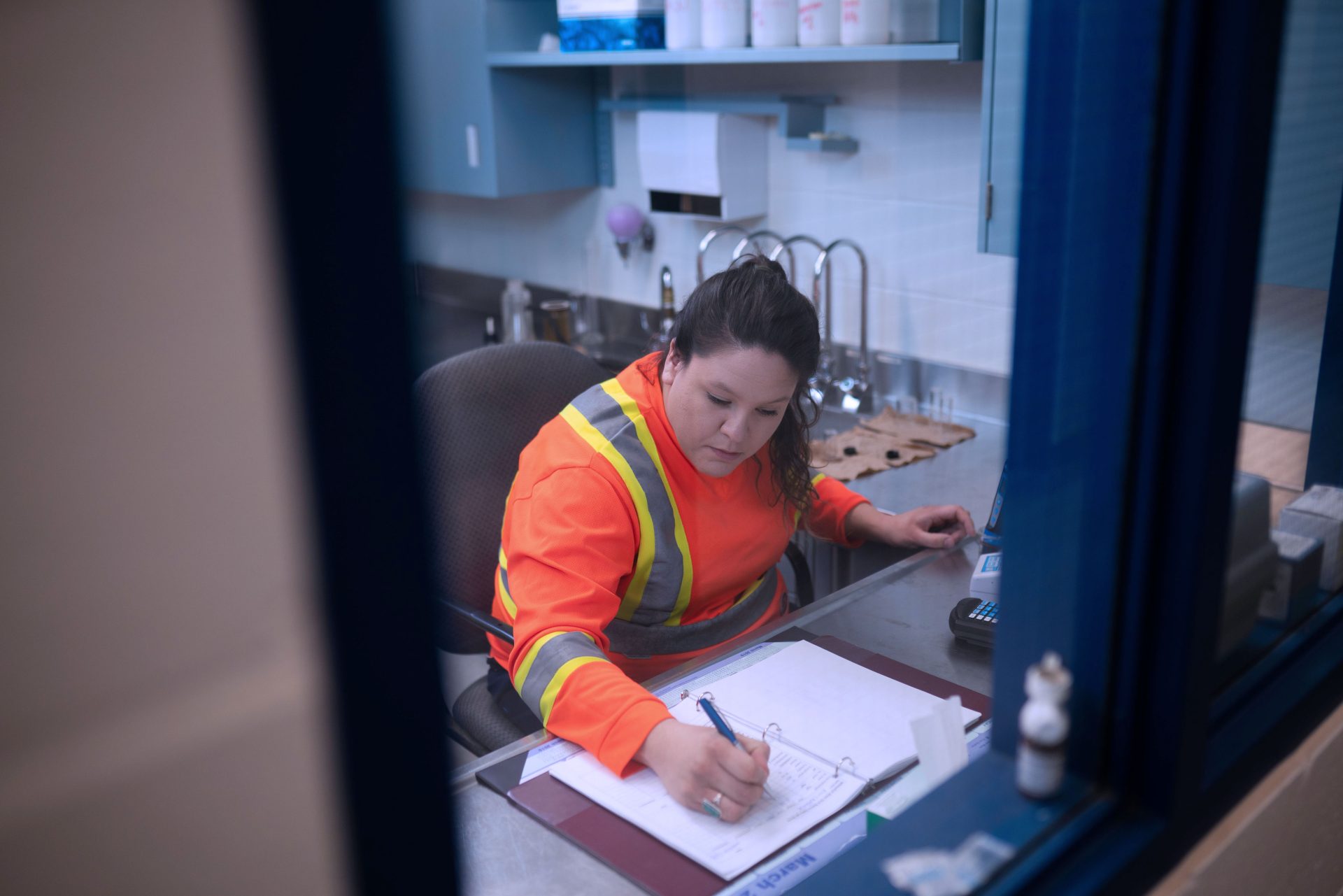Cross-Program Connections in Naskapi
Water First was in Naskapi Nation of Kawawachikamach this past May with both the Environmental Water Program team and the Indigenous Schools Water Program team delivering workshops and training. Hover over a photo to read the caption.
Noah Mokoush has worked with Water First for many years. During the training, he was able to share his knowledge of water science tools and equipment with the other participants.
In preparation for the summer fish habitat assessment project, newly hired interns and previous partners spent time becoming familiar with various water quality monitoring tools and equipment.
Noah and Cheyenne Swappie, both past interns, took on a leadership role with the newly hired interns and demonstrated use of the tools and equipment for the group. In this photo, they’re showing the group how to use a YSI Meter that tests for dissolved oxygen, temperature and pH.
When possible, we try to bring students to the local water treatment plant. This helps bring their understanding of water and water monitoring processes full circle. It also helps to deepen their appreciation for the work that goes into providing a community with safe, clean water.
In addition to participating in the environmental water project this summer, Noah visited the local school to work with our Indigenous Schools Water Program on fun, hands-on water science programming.
Being from the community, Noah was able to chat with the students in Naskapi, the local language. Keegan, one of our technical trainers, noted that the students seemed to be more engaged in what was being taught when Noah explained the concepts to them in Naskapi.
Being from the community, Noah was able to chat with the students in Naskapi, the local language. Keegan, one of our technical trainers, noted that the students seemed to be more engaged in what was being taught when Noah explained the concepts to them in Naskapi.
Students went out on the land to learn about and practice water quality testing using Water Rangers kits. In this photo, they’re doing a dissolved oxygen test which acts as an indicator of the health of the water.
Dillon from our Indigenous Schools Water Program at a local feast, the first gathering since before COVID; Caribou, pemmican, geese, fish, bannock!
Group photo outside of the Naskapi Water Pumphouse.
#NoFilter








